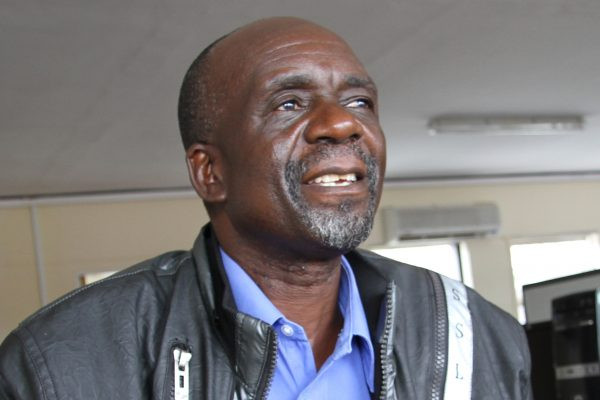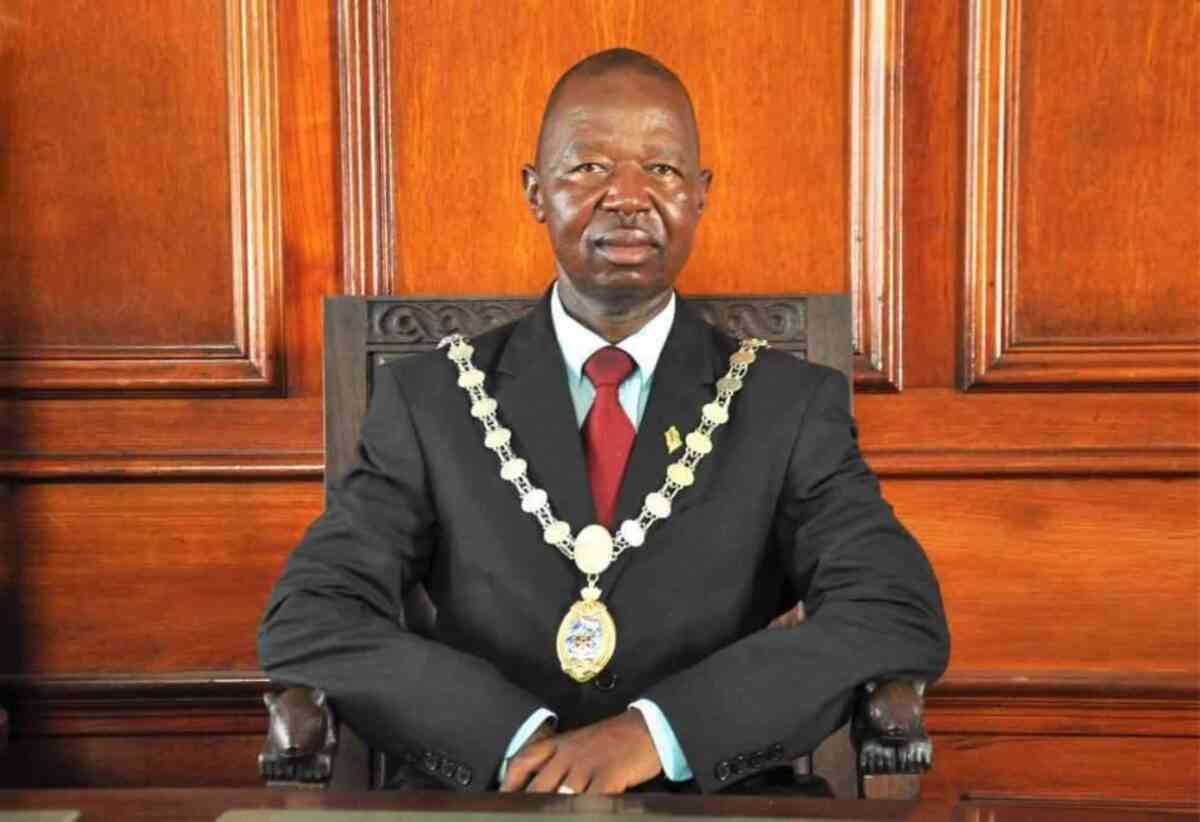
ON November 4, 1977, Hosiah Chipanga, a celebrated musician and emerging political figure, was thrust into a nightmare that would haunt him for years to come.
Accused by the Rhodesian Forces’ military intelligence of being a sell-out and an accomplice of liberation war fighters, Chipanga found himself imprisoned in a dank, overcrowded jail just outside Chimoio in Mozambique.
The oppressive atmosphere was a stark contrast to the vibrant melodies he had once shared with the world.
For nine months, Chipanga endured a harrowing ordeal marked by psychological trauma and the suffocating stench of despair.
In a place where hope seemed a distant memory, he faced the relentless grip of mental psychosis, battling not just for his freedom, but for his sanity.
In an interview with Standard Style in Mutare last Wednesday, Chipanga delved into the life and struggles of a man who, despite being silenced by his captors, remained a symbol of resilience in the face of overwhelming adversity.
Chipanga addressed claims from some fans who aligned him to President Emerson Mnangagwa and the ruling Zanu PF party.
The scrutiny followed his performance at the recent launch of the Presidential War Veterans Fund and related initiatives at Dewedzo High School in Makoni West constituency.
- In the groove: Is Patrick Mukwamba jinxed?
- In the groove: Is Patrick Mukwamba jinxed?
- Desist from political violence, artist tells ED
- I have always been a politician: Hosiah Chipanga
Keep Reading
Chipanga, famed for being a critic of the Zanu PF government, clarified his position, stating he was not siding with any political faction, but considers himself a war veteran on a divine mission to offer wisdom and guidance to the country’s leadership.
“I have never been against the government of the day; I have always been in a spiritual advisory role,” he said, emphasising his intentions are often misconstrued as opposition.
He elaborated on his identity as a war veteran, asserting that his performances at state functions are not politically motivated, but rather opportunities to express his views on the pressing social and economic challenges facing Zimbabwe.
“The situation right now needs God’s intervention,” he stated, underscoring his belief that spiritual solutions are essential for national recovery.
Chipanga recounted his history, including a significant dream on September 13, 1977 that prompted him to join the liberation struggle.
He shared the harrowing experience of being arrested and detained by Rhodesian forces, an ordeal that he described as transformative.
“This jail became my school of thought,” he recalled, stating it solidified his commitment to providing spiritual guidance to the nation.
Despite facing a prolonged blackout from state radio stations and media, Chipanga remains dedicated to inspiring future generations through his music.
He expressed frustration over the accusations against him, emphasising that his past struggles and intentions are often overlooked.
“It is unfair for some sections to accuse me without understanding my history,” he said.
After the release from jail in 1978 through a ceasefire Chipanga wrote and released a single titled Kudai Ndakaziva, which was banned by the Ian Smith regime.
“Unfortunately, the song was banned by the Ian Smith government, as it came out during the ceasefire period before the 1980 general elections,” Chipanga said.
“So it is very unfair for some sections to accuse me of performing at certain functions because they do not know my history.
“It is my wish for everyone including my distractors that l will release a book of my history after full filling my ambition.
“I have set certain targets to accomplish my mission. It is not a secret that my political history, my music and personal background will all be revealed in this book.”
After independence, during the 1980s and 1990s Chipanga dominated the airwaves with hits such as Muchaneta, Mabasa, Gumi Remitemo, Pfuma Huru, Shinda Isina Tsono, Zvichandibatsirei, Guva RaSatani and Hove Dzemugungwa, among others.
He was not finished yet as he enthralled fans with captivating songs like Makomborero, winning the Coca Cola Top 50 in 2004, Kwachu Kwachu winning the Nama Best Sungura Song in 2012.
Other songs include Ivhu Ratakafira Nderipiko, Zvipfukuto, Ndafunga Zano and the anthemic Gushungo Vane Munyama.
But the musical odds turned against him as his albums were banned at the turn of the millenium as they were deemed to be political incorrect.
The albums Hero Shoko (2010), Mumweya (2014) and Gamba (2016) dedicated to one of the most decorated liberation fighters, the late Solomon Mujuru among other single tracks which were alleged to have political overtones.
Chipanga feels betrayed by critics, regardless of almost 50 years in musical mission to try and save the country from its problems.
He is hurt and an aggrieved man, as he said for a long period his music has been banned, but no one of the critics helped him and suffered alone in isolation.
The Kwachu Kwachu hit maker claimed that no one helped him survive the vagaries of being blacklisted.
“No one was with me during these difficult times,” he said.
“Where were they when l needed them most?
“All along, l have been labelled an enemy of the state as my messages were misinterpreted, as they failed to interpret the actual meaning and objective of my song.
“My mission is to just give ideas from the uppermost spiritual world.”
Chipanga said when performing at public gatherings and state functions, his mission is to unite Zimbabweans.
“I tried to have a word with Mugabe and Mnangagwa one-on-one on numerous occasions in trying to tell him solutions to the country’s problems, but I was blocked by certain government officials (names withheld),” he said.
“Those that were around Mugabe and still others that are close to Mnangagwa think I am mad.
“I have gone to the high political offices with my ideas, but, they just dismiss me like an insane man.
“But I will not budge because I have a lot I know that is hidden from the living.”
Chipanga is now back on a massive recovery path following his recent successful shows throughout the country with sungura ace, Alick Macheso, that have seen him reconnecting with his multitude of fans.
Despite the criticism from certain political sections, the veteran entertainer mesmerised fans in Dewedzo with an exquisite performance.
Screams erupted and camera flashes lit up the stage, as Chipanga, also known as Kwachu Kwachu, delivered a superb and remarkable top class entertainment.
Through these state and public functions, the whirlwind tours have marked a tremendous Chipanga come back onto the showbiz scene.
In a landscape often marred by political tension, Chipanga’s call for spiritual intervention and unity resonates as he continues his journey as an artist and a voice for his country.










